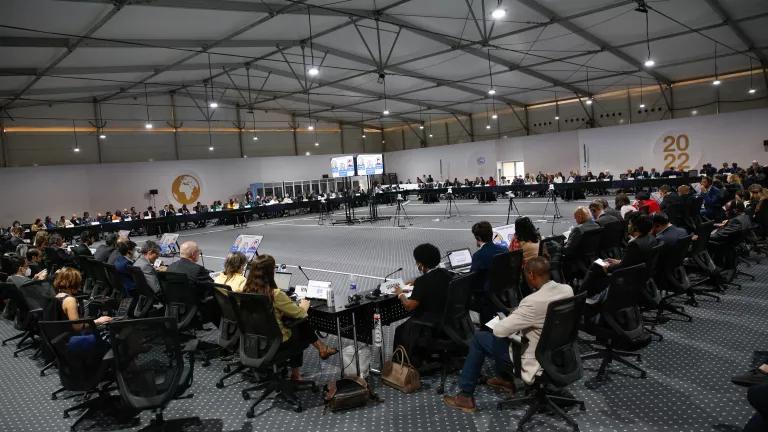Something New in the AIR in Ahmedabad
Today the city of Ahmedabad, in Gujarat state in India, is taking another giant step toward improving health among its residents.
Ahmedabad’s A.I.R. (Air Information and Response) plan is a health-based program designed to protect and increase awareness among residents on air pollution, with an AQI as its centerpiece. My NRDC colleague Anjali Jaiswal, who leads our India Program, is in Ahmedabad right now to witness today’s launch.
Air pollution can cause severe respiratory difficulties and threatens health for everyone, but particularly children, the elderly, and people already ill. Air pollution is an increasing problem in Indian cities. While air pollution poses enormous public health challenges India-wide and globally, Ahmedabad is taking steps to promote local communication on the health risks of air pollution, to help save lives.
The AIR Plan links a city-specific air quality index (AQI) with the community. With the AQI as the center point, the Ahmedabad AIR Plan focuses on health risk communication and creates immediate and longer-term actions to increase preparedness, information-sharing, and response coordination to reduce the health impacts of air pollution on vulnerable populations.
The Ahmedabad AIR Plan is part of a broader collaboration between the Ahmedabad Municipal Corporation, or AMC, and public health and policy experts at the Indian Institute of Public Health, Gandhinagar (IIPH-G), Public Health Foundation of India (PHFI) and the Natural Resources Defense Council (NRDC). The AIR plan and its AQI are supported by technical expertise from the Indian Institute of Tropical Meteorology, Pune (IITM)’s System of Air Quality and Weather Forecasting and Research (SAFAR) program.
Climate change is fueling more extremely hot days, and that heat worsens many types of air pollution—so these steps can improve health today and increase climate resiliency for the future. In 2013, Ahmedabad became the first Indian city to create a comprehensive early warning system and heat action plan for extreme heat events. As my NRDC colleague Nehmat Kaur describes, we had a great trip to India last December to discuss both heat action plans and the new air pollution and health work, applying knowledge gained from the Heat Action Plan.
Ahmedabad shows how coordinated planning provides an opportunity for city and other governments to take the lead on resiliency and preparedness in India. The development and implementation of the AIR plan will help protect millions from the dangerous health effects of air pollution. Hats off to Ahmedabad again, for its leadership, initiative, and dedication to protecting people’s health.



